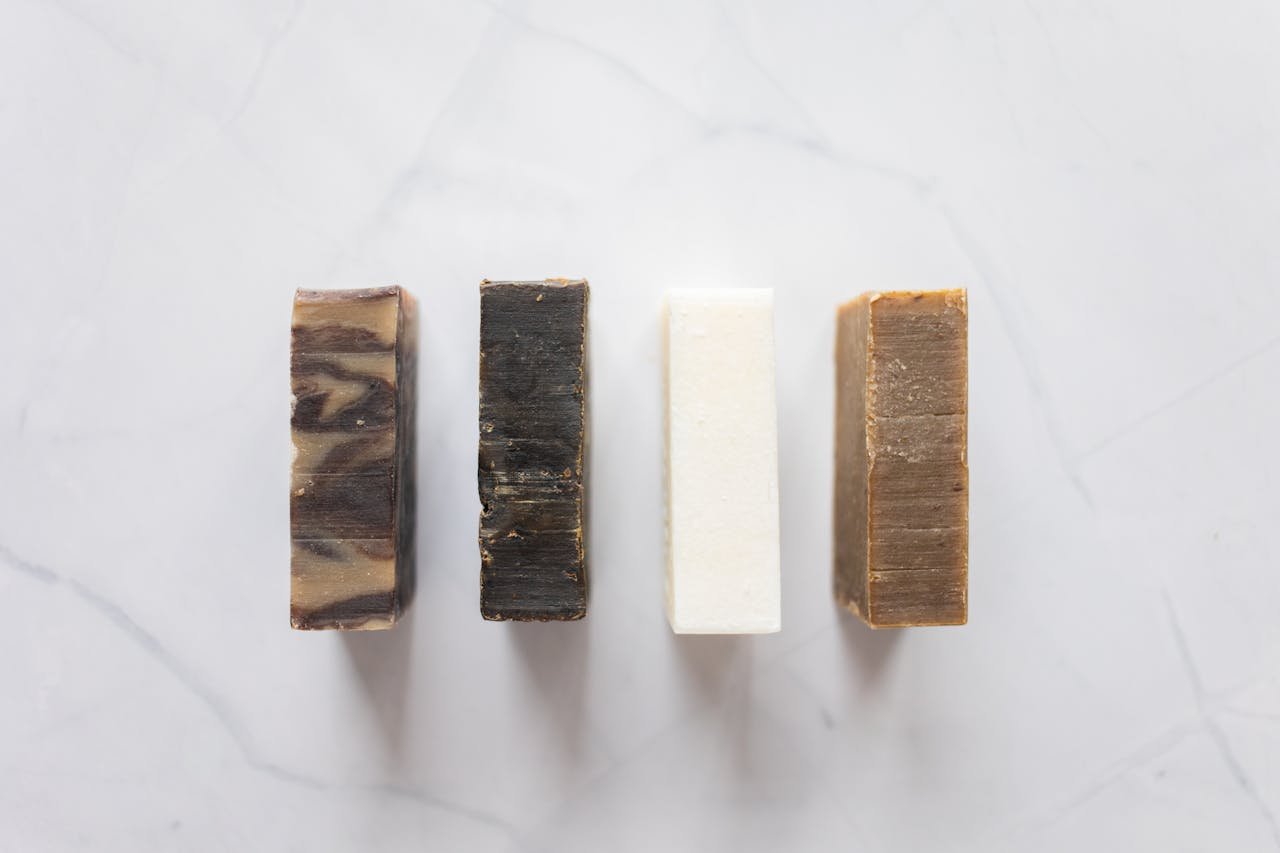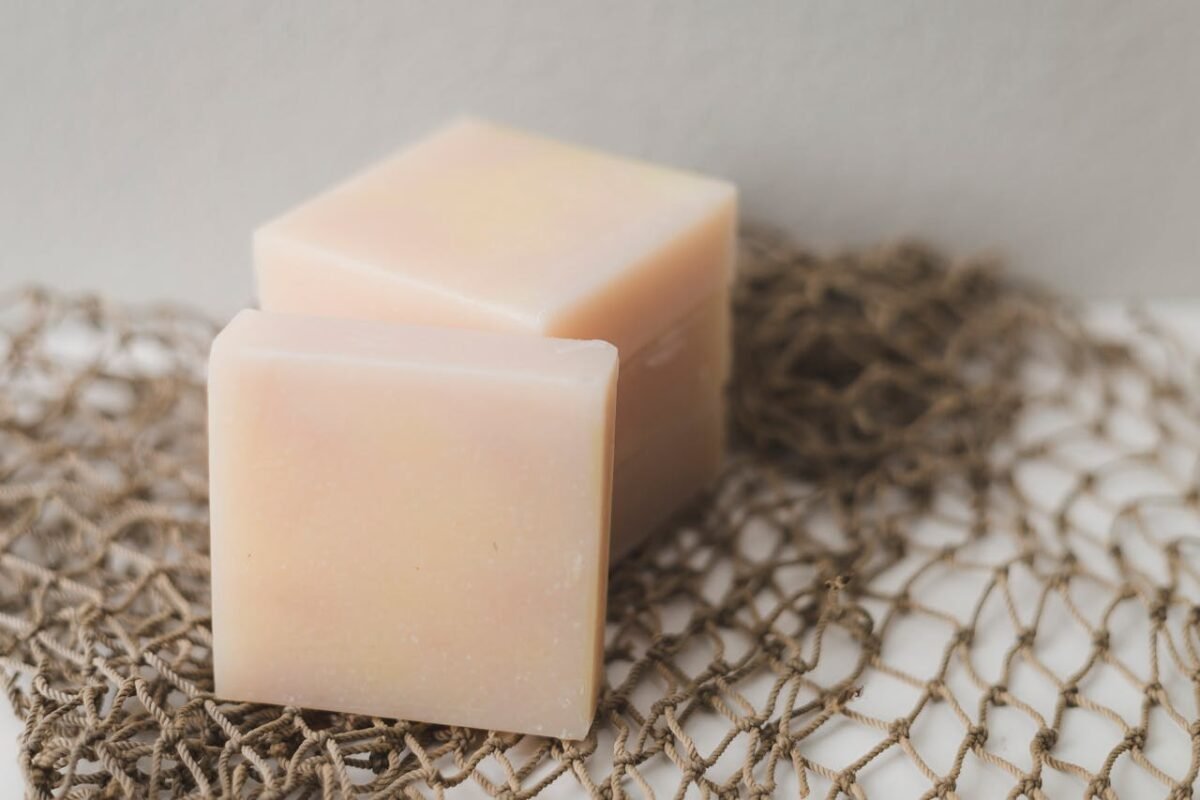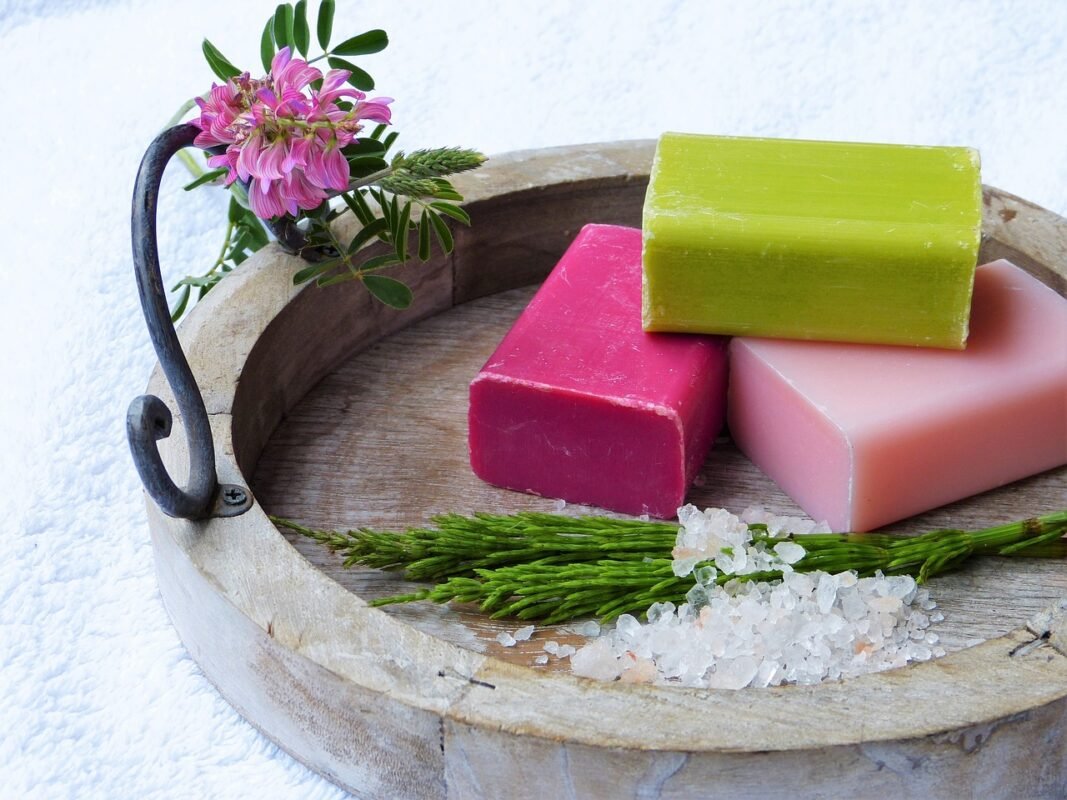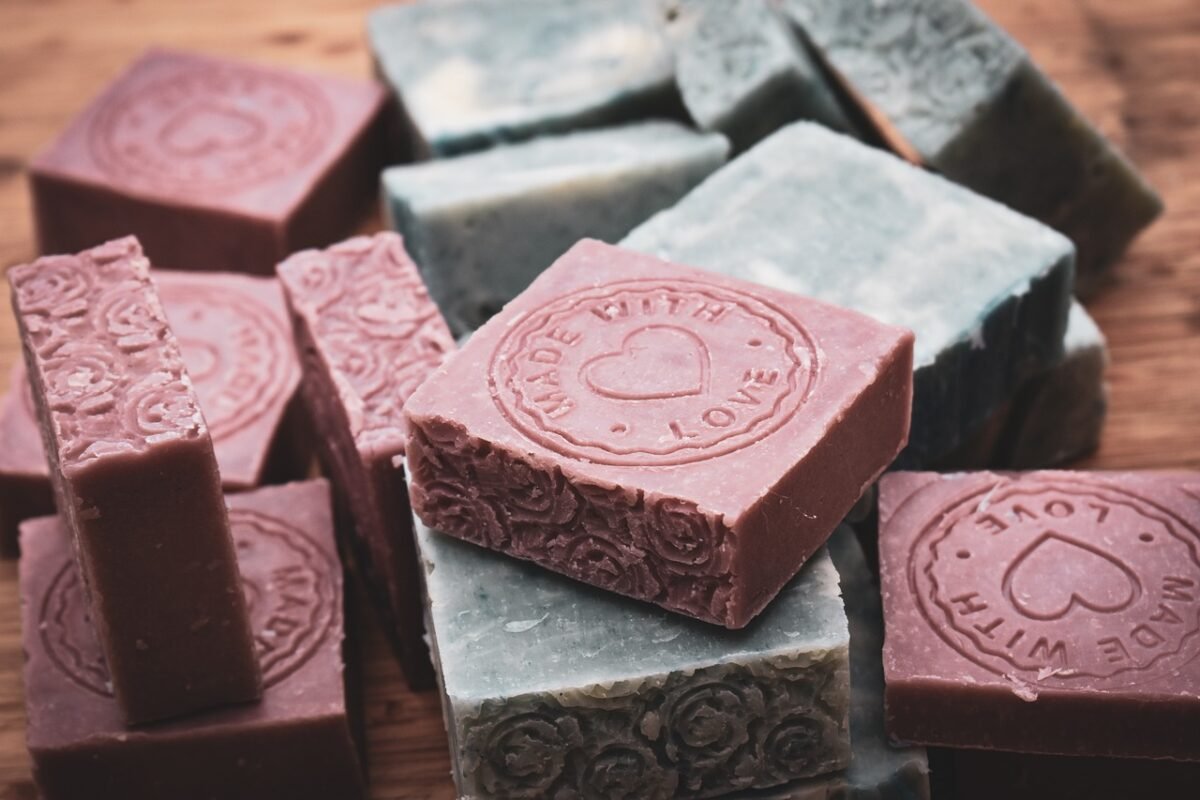In a world filled with a variety of soaps, understanding how to read and interpret soap labels is crucial for choosing the right soap for your skin and personal needs. With many commercial soaps containing harsh chemicals, it’s important to be aware of the potential negative effects on your skin. Join us on this delightful journey into the world of soaps, where we explore the beauty of self-care and skin care through these useful insights.
How to Read Soap Labels, A Guide to Choosing the Best Soap:
Standing in front of shelves filled with personal care products, choosing the right soap can be a daunting task due to the variety of brands and ingredients. Reading and understanding the labels on soap packages is a crucial step in selecting the best product for your skin. In this section, we provide a comprehensive guide on how to read soap labels and understand the listed ingredients, helping you make an informed decision that suits your skin’s needs.
A. Basic Soap Ingredients:
Before diving into label reading, it’s important to understand the basic ingredients that most soaps are made of:
- Oils and Fats: Often the main components of soap. These can include vegetable oils like olive oil, coconut oil, and palm oil, or animal fats like tallow.
- Water: Used to dissolve ingredients and facilitate the saponification process.
- Alkali: Such as sodium hydroxide (lye) or potassium hydroxide, which react with oils to form soap.
- Additives: Can include fragrances, colors, preservatives, and additional therapeutic or nourishing ingredients
B. How to Read Labels:
When reading soap labels, here are key points to pay attention to:
- Order of Ingredients: Ingredients are listed in descending order by quantity. The first few ingredients are the most abundant in the product.
- Natural vs. Chemical Ingredients : Look for natural ingredients like plant oils and natural butters. Avoid harsh chemicals such as sulfates, phthalates, and parabens that can irritate and dry out your skin.
- Preservatives and Fragrances : Steer clear of synthetic fragrances which can cause allergies and skin irritation. Opt for soaps scented with natural essential oils. Natural preservatives like vitamin E (tocopherol) are less harmful than synthetic ones.
- Special Ingredients: Look for therapeutic ingredients like tea tree oil (for acne), aloe vera (to soothe skin), and oatmeal (for moisturizing). Avoid ingredients that you know cause you allergies.
C. Types of Soap Based on Ingredients:
Castile Soap: Made from olive oil, it is gentle on the skin and suitable for all skin types, especially sensitive and dry skin.
Glycerin Soap: Contains natural glycerin, making it extremely moisturizing and ideal for dry and sensitive skin.
African Black Soap: Contains natural ingredients like shea butter and plantain skins ash, excellent for oily and acne-prone skin due to its antibacterial properties.
D. Tips for Choosing the Right Soap:
- Know Your Skin Type: Understand whether your skin is dry, oily, combination, or sensitive, and choose soap accordingly.
- Read Reviews: Check other users’ experiences to gauge the product’s effectiveness and safety.
- Test a Small Area : When trying a new product, test it on a small area of skin to ensure no adverse reactions occur.
Reading soap labels and understanding their ingredients can help you make better decisions for your skin care routine. By choosing products with natural ingredients and avoiding harsh chemicals, you can ensure your skin receives the care it needs without exposure to harmful substances. Make this guide a part of your shopping routine to improve your skin’s health and appearance, making it look more radiant and vibrant.
Using natural soap is not only a healthy choice for your skin but also a step towards a more sustainable and eco-friendly lifestyle. By selecting the right soap for your skin type and storing it properly, you can extend its benefits for a longer period. Let’s return to nature and take care of our skin in safe and effective ways.
The Harmful Effects of Commercial Soap: Negative Impacts of Harsh Chemicals
Commercial soap is widely available and often marketed with promises of effective cleaning and pleasant fragrances. However, many commercial soaps contain harsh chemicals that can adversely affect your skin and overall health. In this chapter, we will highlight the potential hazards of using commercial soap containing these harsh chemicals.
Harmful Chemicals in Commercial Soap :
Commercial soaps often contain various chemicals designed to improve appearance, fragrance, and shelf life.
A. Some of these harmful substances include:
- Sulfates:
- Sodium Lauryl Sulfate (SLS) and Sodium Laureth Sulfate (SLES) are used to create foam.
- They can cause skin dryness and irritation, especially for sensitive skin.
- Parabens:
- Used as preservatives to extend product shelf life.
- They may disrupt natural hormones in the body, leading to potential health issues.
- Phthalates:
- Used to stabilize fragrances and colors.
- Linked to endocrine and reproductive health problems.
- Synthetic Fragrances:
- Contain undisclosed chemicals that can cause allergies and skin irritation.
B. Negative Effects of Using Commercial Soap
- Dryness and Irritation:
- Harsh chemicals like sulfates can strip the skin of its natural oils, leading to dryness and irritation. This can be particularly problematic for people with sensitive skin or skin conditions such as eczema.
- Allergic Reactions and Skin Sensitivity:
- Synthetic fragrances and preservatives can cause allergic reactions, such as rashes and itching. These substances can be too harsh on the skin, leading to persistent irritation.
- Disruption of Natural Skin Balance:
- Frequent use of commercial soap can disturb the skin’s natural pH balance, making it more susceptible to infections and irritations.
- Long-term Health Effects:
- Chemicals like parabens and phthalates can accumulate in the body over time, potentially leading to hormone disruptions and an increased risk of certain cancers.
- Environmental Impact:
- The chemicals in commercial soap not only affect skin health but can also pollute the environment when washed into groundwater and rivers, harming ecosystems and marine life.
C. Natural and Safe Alternatives
To counter these harmful effects, consider using natural soap made with safe, skin-friendly ingredients. Natural soaps made from vegetable oils, natural butters, and plant extracts provide effective cleansing without the harmful side effects of commercial soap.
- Plant Oils:
- Oils like olive oil, coconut oil, and sweet almond oil nourish and moisturize the skin naturally.
- Natural Fragrances:
- Essential oils such as lavender, peppermint, and eucalyptus offer refreshing scents without irritating the skin.
- Natural Preservatives:
- Vitamin E and other natural antioxidants preserve the product without negative health effects.
Using commercial soap with harsh chemicals can lead to numerous health and environmental problems. By understanding these risks and seeking natural, safe alternatives, we can enhance the health of our skin and the environment around us. Making conscious choices towards natural products can achieve effective cleansing while maintaining the softness and health of your skin.
Choosing natural soap is not only a healthy choice for your skin but also a step towards a more sustainable and eco-friendly lifestyle. By selecting the right soap for your skin type and storing it properly, you can extend its benefits for a longer period. Let’s return to nature and take care of our skin in safe and effective ways.
We hope you enjoyed this journey into the world of soaps and gained valuable insights. Thank you for your trust, and we look forward to sharing more exciting and informative content with you soon.





